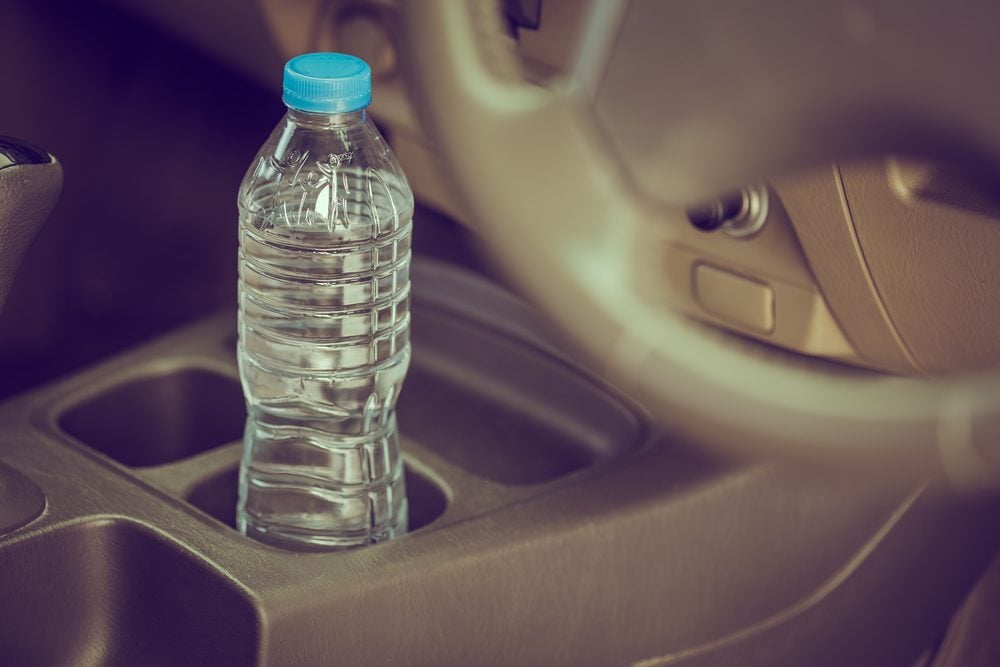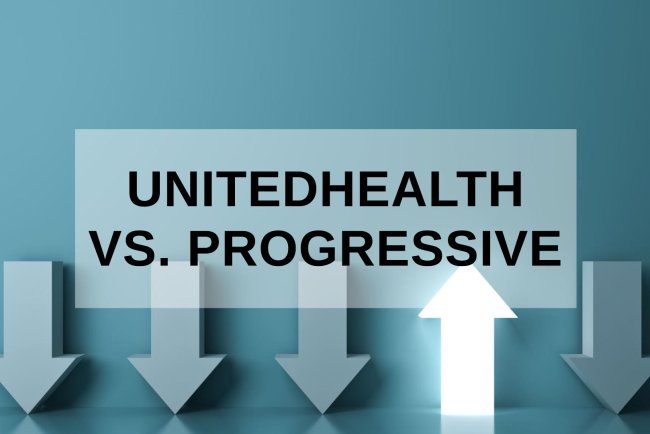Understanding Windshield Crack Laws and Costs: What You Need to Know
A single stray rock or a falling tree branch can easily cause a crack in your windshield, posing a potential safety hazard.

A single stray rock or a falling tree branch can easily cause a crack in your windshield, posing a potential safety hazard. Although a small crack might seem insignificant at first, it can compromise your safety and potentially lead to legal troubles if left unaddressed. This blog explores the risks of driving with a cracked windshield, the legal implications across different states, and the costs associated with repair or replacement.
Can I Drive My Car With a Cracked Windshield?
Federal regulations outline specific criteria for windshield cracks that may render your vehicle unsafe to drive. According to these guidelines, if a crack meets any of the following conditions, it must be repaired immediately to avoid potential penalties:
- The crack exceeds 0.75 inches in diameter.
- The crack obstructs the driver’s view above the steering wheel.
- There are two cracks within three inches of each other.
- Two cracks intersect.
These regulations aim to ensure that cracks which impair visibility or compromise vehicle safety are addressed promptly. However, individual state laws may impose stricter requirements. For instance, while some states only require that the crack does not obstruct the driver’s view, others have more detailed regulations concerning the size and location of cracks.
What Are the Dangers of Driving With a Cracked Windshield?
Driving with a cracked windshield poses several serious risks:
-
Reduced Visibility: Cracks can obstruct critical areas of your windshield, impairing your ability to see the road and other vehicles. This issue is compounded at night or during adverse weather conditions when visibility is already limited.
-
Structural Weakness: Your windshield contributes significantly to the structural integrity of your vehicle, providing up to 45% of the cabin’s strength and up to 60% in rollover incidents. A cracked windshield can weaken this structure, making you more vulnerable in a collision.
-
Damaged Safety Glass: Windshields are made from safety glass, which consists of two layers held together by a resin. This design prevents the glass from shattering and causing injuries. If the integrity of the safety glass is compromised by cracks, the risk of injury from shattered glass increases.
-
Reduced Passenger Airbag Effectiveness: Passenger airbags rely on the windshield to absorb and deflect impact forces. A damaged windshield may not provide adequate support, potentially reducing the effectiveness of the airbag and increasing the risk of injury during an accident.
Cracked Windshield Laws by State
State regulations regarding windshield cracks vary significantly. Here’s a summary of the specific requirements for each state:
-
Alabama, Alaska, Arizona, Arkansas, California, Colorado, Connecticut, Delaware, Florida, Georgia, Indiana, Iowa, Kentucky, Louisiana, Maine, Maryland, Massachusetts, Michigan, Minnesota, Mississippi, Missouri, Montana, Nebraska, Nevada, New Hampshire, New Jersey, New Mexico, North Carolina, North Dakota, Ohio, Oregon, Pennsylvania, Rhode Island, South Carolina, South Dakota, Tennessee, Texas, Vermont, Virginia, Washington, Washington, DC, West Virginia, Wisconsin, Wyoming: Most of these states only require that cracks do not obstruct the driver’s view. However, some states, like Louisiana and Maine, have additional restrictions on crack size and location.
-
Georgia: No cracks with a starburst or spider webbing effect larger than 3 inches by 3 inches are allowed.
-
Louisiana: Prohibits cracks that directly obstruct the driver’s vision, cracks larger than 2 inches on the driver’s side, and more than two star cracks over 1.5 inches in diameter.
-
Massachusetts: Cracks within the windshield wiper area, those obstructing the view, or those larger than the size of a quarter are prohibited.
-
Missouri: Prohibits shattered areas, star cracks, and any cracks within the driver’s viewing area or windshield wipers area.
-
New York: Prohibits cracks, chips, and defects that impair the view of the road, including cracks over 11 inches in the windshield wiper area.
-
Oklahoma: Prohibits cracks larger than 3 inches in diameter and stress cracks longer than 12 inches within the windshield wiper area.
-
Rhode Island: Allows minor cracks separate from each other and not directly in front of the driver. However, damage affecting the safety seal inside the glass layers or in the driver’s side wiper area is prohibited.
-
South Dakota: Prohibits any cracks, chips, or damages.
-
Utah: Prohibits damages, scratches, or discoloration that obstruct the driver’s view and cracks extending beyond certain dimensions.
-
Virginia: Prohibits scratches and cracks greater than specific dimensions in the windshield wiper area and those starting from a star crack.
-
Wisconsin: Prohibits cracks larger than ½ inch in diameter in the driver’s line of sight, those passing 8 inches from the top edge, and all cracks larger than 1.5 inches in diameter.
How Much Are Tickets for Cracked Windshields?
Fines for driving with a cracked windshield vary by state and the extent of the damage. For example, in Pennsylvania, you might face a fine between $50 and $120, while in Arizona, the fine could reach up to $150. Some states allow for "fix-it-tickets," which enable you to have the windshield repaired or replaced and present proof before your court date to potentially reduce or waive the fine.
Keep in mind that continuing to drive with an unaddressed cracked windshield may lead to additional tickets and fines until the issue is resolved.
Will a Fix-It-Ticket for a Cracked Windshield Go on My Record?
Fix-it-tickets are typically considered nonmoving violations and usually do not affect your driving record. However, if you receive a fix-it-ticket alongside a moving violation, such as speeding, the moving violation may impact your record. It’s crucial to address fix-it-tickets promptly to avoid complications.
Will My Insurance Be Affected?
Failing to resolve a cracked windshield before your court date may indirectly affect your insurance. While nonmoving violations generally don’t impact your insurance rates directly, issues like unpaid tickets could lead to a suspended license. A suspended license can flag you as a high-risk driver, potentially resulting in higher insurance premiums. Additionally, unresolved tickets might be sent to collections, affecting your credit score. Since insurers often consider credit scores when determining rates, a drop in your score could lead to increased premiums.
How Much Does It Cost To Fix a Cracked Windshield?
The cost of windshield replacement and repair varies depending on the vehicle model and the extent of the damage. Replacing a windshield on older car models generally costs between $300 and $600, while newer models with advanced sensors can cost up to $1,000 or more. Repairing a small crack or chip is typically more affordable, ranging from $60 to $90.
Insurance coverage can also play a role in managing these costs. Comprehensive insurance generally covers windshield replacement if the damage was caused by debris or road hazards, while collision coverage applies if the damage occurred during an accident.
FAQs
1. What should I do if I have a cracked windshield?
If you have a cracked windshield, it’s important to address it as soon as possible. Depending on the size and location of the crack, you may need to have it repaired or replaced. It’s best to get it inspected by a professional to determine the appropriate course of action and ensure that it meets legal requirements.
2. How can I find out my state’s specific laws regarding windshield cracks?
To find out the specific laws regarding windshield cracks in your state, check your state’s Department of Motor Vehicles (DMV) website or contact local law enforcement. They can provide you with the most accurate and up-to-date information on windshield regulations.
3. Will repairing a cracked windshield be covered by my insurance?
Repairing a cracked windshield may be covered by your insurance policy. Comprehensive coverage typically includes repairs or replacements for windshield damage caused by external factors like debris or rocks. If the damage occurred during an accident, collision coverage may apply. Check with your insurance provider to understand your specific coverage.
4. What are the potential consequences of ignoring a fix-it-ticket for a cracked windshield?
Ignoring a fix-it-ticket for a cracked windshield can lead to several consequences. You may face additional fines, potential suspension of your license, and increased insurance premiums. It’s crucial to resolve the ticket and address the windshield damage promptly to avoid these issues.
5. How much does it typically cost to repair or replace a cracked windshield?
The cost of repairing or replacing a cracked windshield varies depending on the extent of the damage and the vehicle model. Repairing a small crack or chip usually costs between $60 and $90. Replacing a windshield on older vehicles typically ranges from $300 to $600, while newer models with advanced features may cost up to $1,000 or more.
6. Can I receive a fix-it-ticket if my windshield has a minor crack?
Yes, you can receive a fix-it-ticket if your windshield has a crack that meets certain criteria set by state laws or federal regulations. Even minor cracks can lead to a ticket if they obstruct your view or if they exceed specific size limits. Check your state’s regulations to understand the criteria for receiving a fix-it-ticket.
7. Will a fix-it-ticket for a cracked windshield affect my driving record?
Generally, fix-it-tickets are considered nonmoving violations and do not impact your driving record. However, if you receive a fix-it-ticket along with a moving violation, the moving violation may affect your record. It’s important to address fix-it-tickets promptly to avoid complications.
8. How can a cracked windshield affect my insurance rates?
A cracked windshield itself may not directly impact your insurance rates. However, failing to resolve a fix-it-ticket or having a suspended license due to unpaid fines can indirectly affect your insurance premiums. Additionally, if unresolved tickets are sent to collections, this could impact your credit score, which insurers often use to determine rates.
9. What are the differences between comprehensive and collision coverage for windshield damage?
Comprehensive coverage generally covers windshield damage caused by external factors such as debris or rocks. Collision coverage applies if the windshield damage occurs during an accident. Both types of coverage may help with repair or replacement costs, but the specific details depend on your insurance policy.
10. How can I avoid getting a ticket for a cracked windshield?
To avoid getting a ticket for a cracked windshield, regularly inspect your windshield for damage and address any issues promptly. Ensure that any cracks or chips are repaired or replaced before they become larger or obstruct your view. Familiarize yourself with your state’s regulations to ensure compliance.
What's Your Reaction?



















